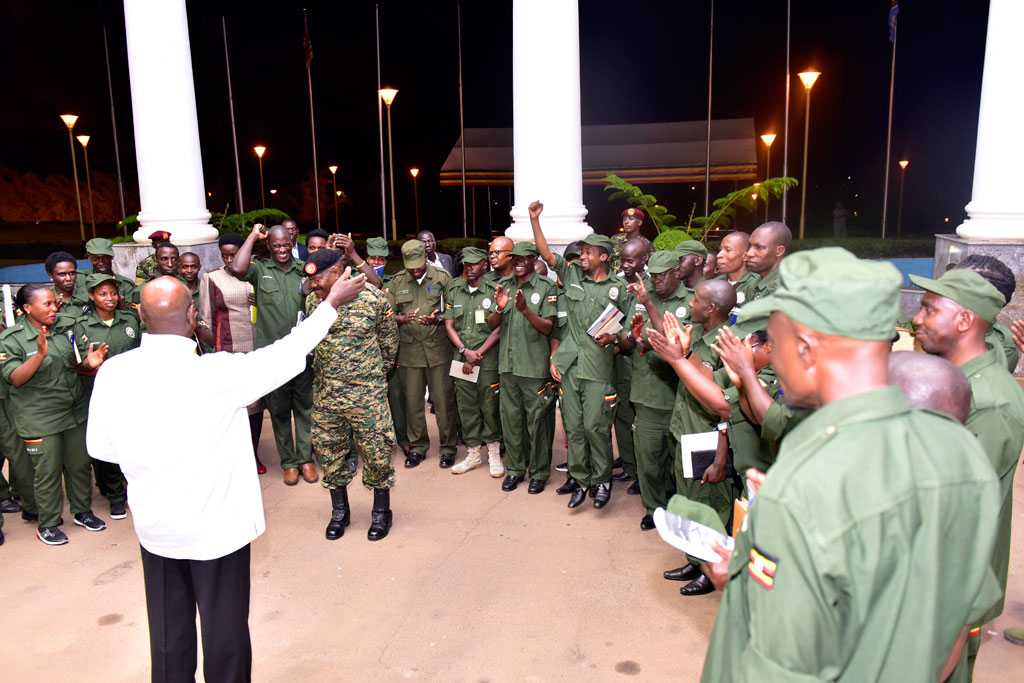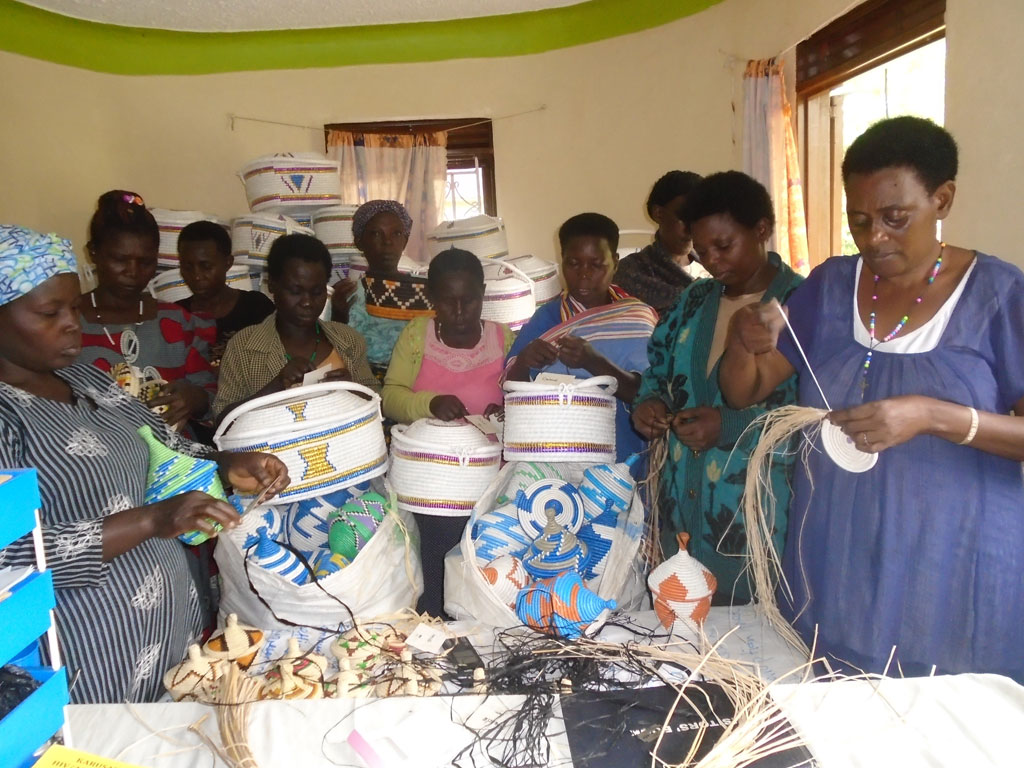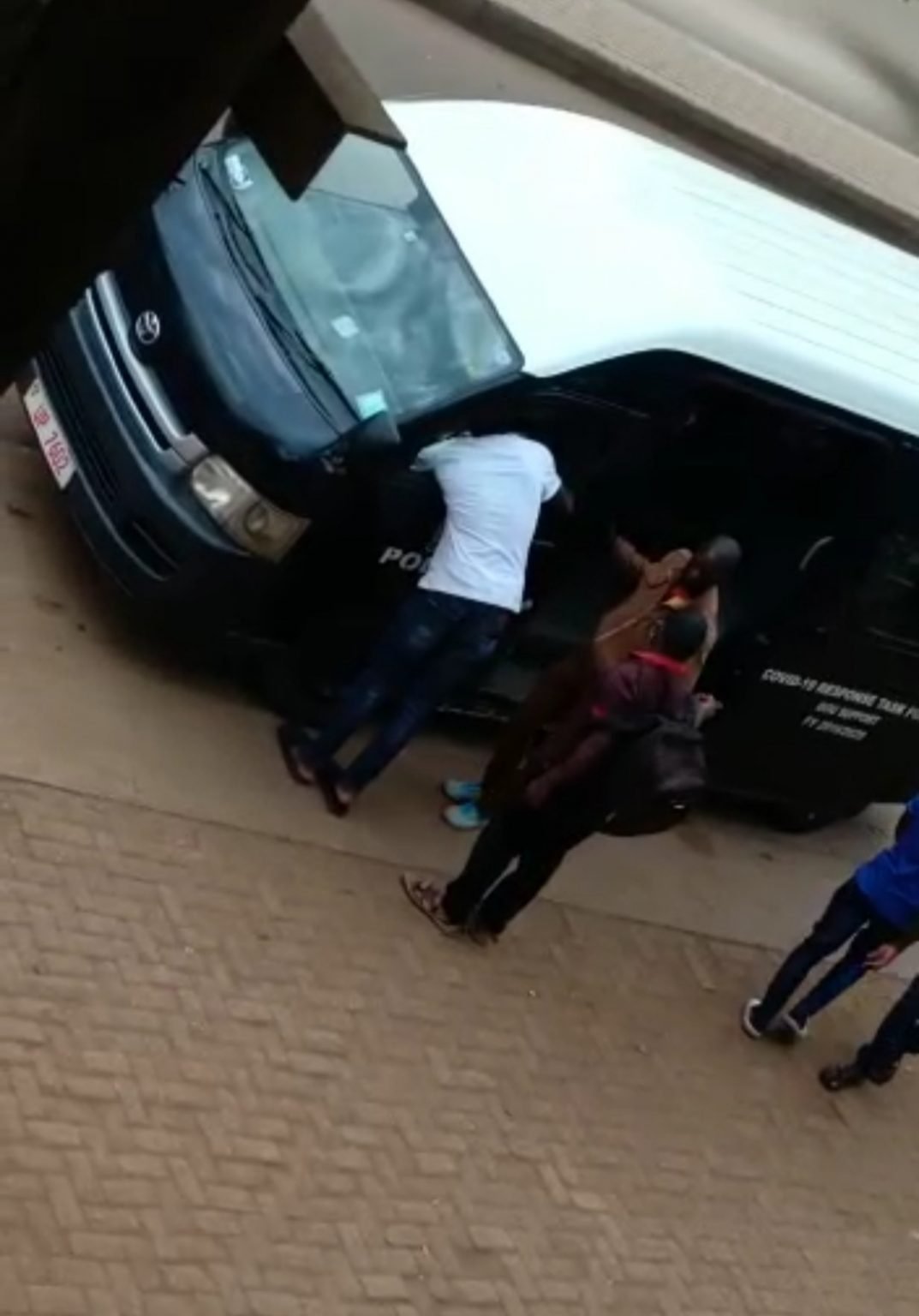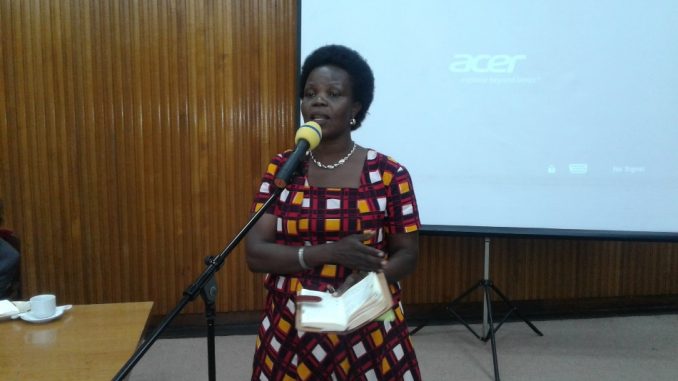President Yoweri Museveni has commended the management of the National Leadership Institute (NALI) based in Kyankwanzi District for its support in politicizing and mentoring National Resistance Movement (NRM) supporters into intellectual cadres with discipline and political charisma.
The President made the remarks yesterday at State House, Entebbe when he presented a political intellectual lecture to the academic staff of Makerere University who comprised 55 Professors, Associate Professors, Lecturers and Researchers.
They have been participating in a 35-day Advanced Political Education and Leadership Training Course at NALI in Kyankwanzi District.
Their programme covered several topics including philosophy, Pan-Africanism, Social Economic Transformation, Political Leadership, Financial Management Literacy and Military Skills.
President Museveni said that the NRM was launched from a peasantry intellectual way that mobilized for a new and modern army that destroyed the old one and built a progressive national cadreship.
“NRM has several tasks. It is challenged by lack of cadres to undertake the many national tasks. Politics is a gigantic subject covering a wide range of historic events that need to be studied,” he said adding that the Movement must cause an immunization of the people against domination and marginalization.
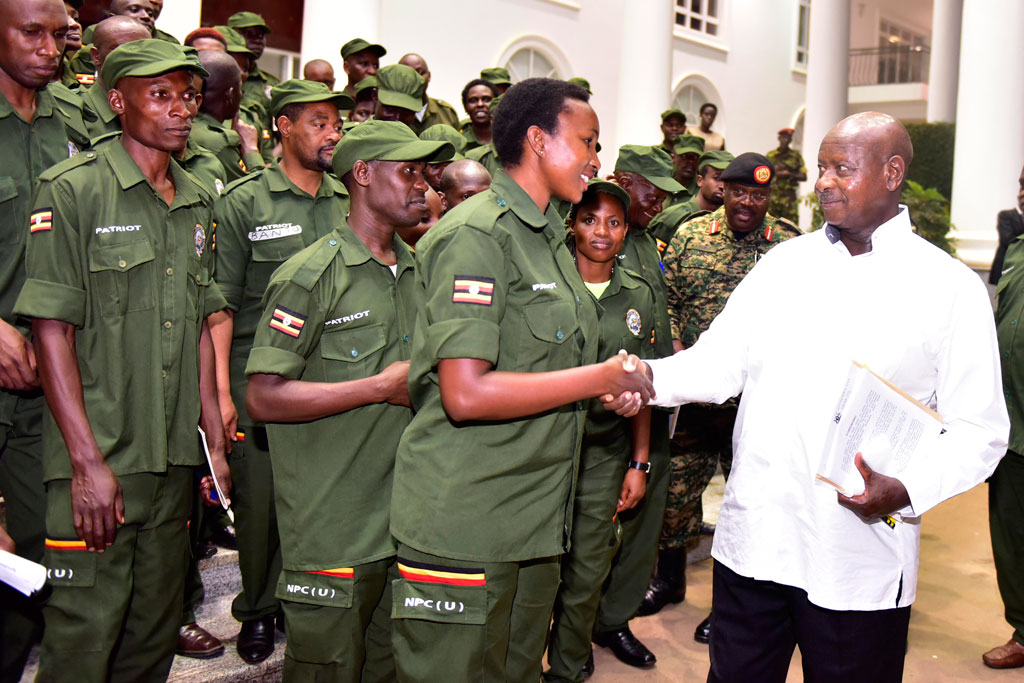
He noted that the mobilization of the population into commercial production will lead to progress.
Mr. Museveni observed that the business community in the country survives through the assurances of the stability of the environment.
The people engaged in production, he said, will always fight for stability.
He, therefore, reiterated that the idle youth must be enabled to be productive and that the measure would enable them to be propelled towards development.
He reiterated that the NRM Government is committed to getting capital in order to enable the production of goods and services take firm grip in the country.
While answering concerns about women being undermined, he said the way forward is to provide them with education and economic independence.
He observed that girls must be strengthened through education and enabled to participate in a non-agricultural economy; citing the setting up of small and medium factories, hotels, shops and ICT facilities.
He emphasized that the national budget should support production and not consumption such as increased salaries of public servants.
Regarding the issue of lack of national language in Uganda, the President observed that English which is the only recognized language in the country as an official medium of communication does not reach all the people in the country.
He, therefore, suggested that Kiswahili can be used to unite big groups because it is a neutral language.
He said that the crystallization of social interests, educating people to shift to the middle class by mobilizing the population into commercial production, the manufacturing sector aimed at increased production with legitimate interests is the solution to Africa’s backwardness.
President Museveni noted that a growing and big population in any developing country is an asset.
He observed that population growth is not a problem but what is lacking is proper economic planning.
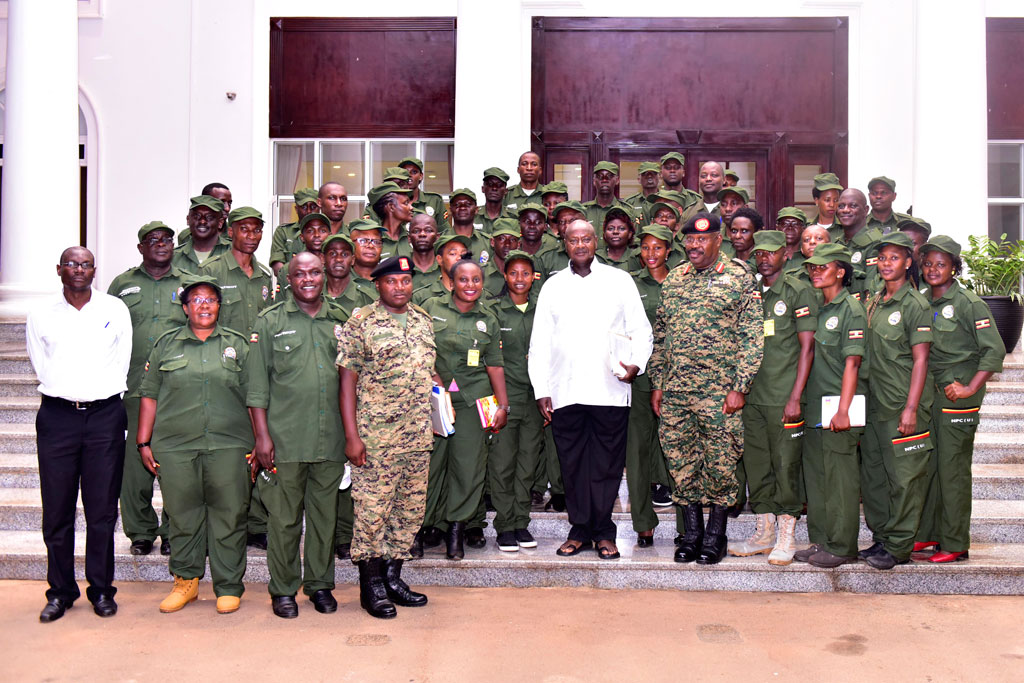
He said that population growth can become an asset to the country once it is done with creativity as was the case in Japan.
He was pleased to note that in Uganda, the situation is good because our people are increasingly getting educated.
Professor Peter Baguma of the School of Psychology at Makerere University and leader of the delegation, stressed the need to establish a think-tank at national level that should be employed for spearheading socio-economic transformation and planning for society.
He proposed that the think tank should be housed at Makerere University.
The Lecturers resolved that all student leaders should be taken to the National Leadership Institute for training and proposed that the services of NALI should be decentralized to all the regions in the country in order to have a big impact.
The Director of NALI, Brigadier David Kasura Kyomukama said that by training a unique group drawn from a cross section of academia in political science, was a rare occasion.
He noted that the measure goes a long way in creating more chances to nurture more agents of political transformation in the country.


